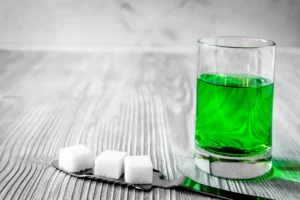
A child is considered to have partial fetal alcohol syndrome when they have been exposed to alcohol in the womb and have some but not all of the traits linked to FAS. If Alcoholics Anonymous you’ve already consumed alcohol during pregnancy, it’s never too late to stop. Brain growth in the fetus takes place throughout pregnancy, so stopping alcohol consumption as soon as possible is always best. Parental training is meant to help parents to help families cope with behavioral, educational and social challenges. Parents might learn different routines and rules that can help their child adapt to different situations.
Fetal Alcohol Syndrome

And other therapies help improve the quality of a child’s life. However, as for many other diseases, prevention is the only cure for FAS. People with fetal alcohol syndrome have a life expectancy of about 34 years.

Fetal Alcohol Syndrome Treatment

It is advised to avoid all alcoholic beverages, including wine, beer, and low alcohol drinks, during pregnancy. These complications can be due to underlying neurodevelopmental disorders. However, many children who receive the right support and therapies can overcome these defects and have a better quality of life. If a caretaker or healthcare provider believes a child has fetal alcohol syndrome, they are typically referred to an FASD specialist. There is no safe amount or type of alcoholic beverage, and no safe time to drink alcohol during pregnancy.
Innovation and your child
- Damage to your developing baby can happen at any point during pregnancy.
- This exposure typically occurs when a pregnant person drinks alcohol, and it enters the fetus’s bloodstream through the umbilical cord.
- What may be responsible are byproducts generated when the body metabolizes (“burns”) alcohol.
- Fetal alcohol syndrome (FAS) is a severe form of fetal alcohol spectrum disorder (FASD) seen in babies born to mothers who drink during pregnancy.
By Serenity Mirabito RN, OCNMirabito is a certified oncology nurse. A commitment to patient advocacy informs her healthcare writing. About half of the pregnancies in the United States aren’t planned, leaving the opportunity for accidental alcohol use in the first few pivotal months of gestation.
- However, this requires that a mother stop using alcohol before becoming pregnant.
- Central nervous system damages due to prenatal alcohol exposure are permanent.
- Some of the most severe problems happen when a pregnant person drinks in the first trimester, when the baby’s brain starts to develop.
Fetal Alcohol Syndrome (FAS): Causes, Symptoms And Treatment
- FAS is a long-term disability that affects children from birth.
- Alcohol can interfere with development and cause birth defects.
- Other fetal alcohol spectrum disorders share some symptoms with fetal alcohol syndrome.
- Many drugs can pass from the mother’s blood stream through the placenta to the fetus.
- Babies and children with alcohol-related damage often need developmental follow-up and, possibly, long-term treatment and care.
Even a drunken baby syndrome small amount of alcohol can have adverse effects on a growing fetus. Alcohol seems most damaging in the first trimester (three months) of pregnancy but can affect the fetus at any time during the pregnancy. Some parents and their children seek alternative treatments outside of the medical establishment. These include healing practices, such as massage and acupuncture (the placement of thin needles into key body areas). Alternative treatments also include movement techniques, such as exercise or yoga. People with FAS may have problems with their vision, hearing, memory, attention span, and abilities to learn and communicate.

Een reactie achterlaten